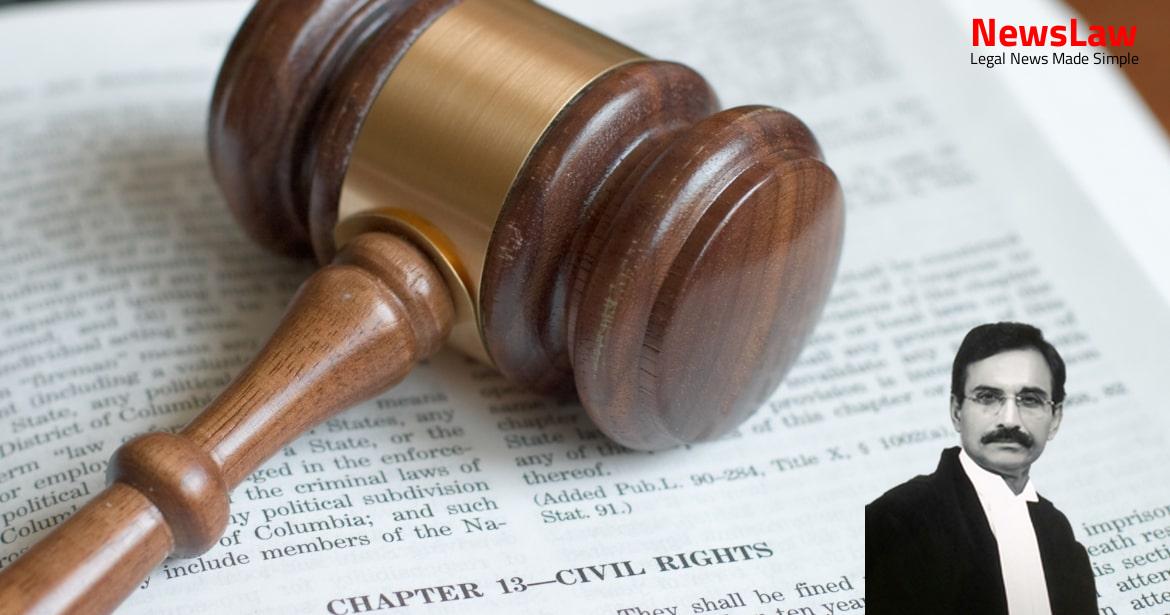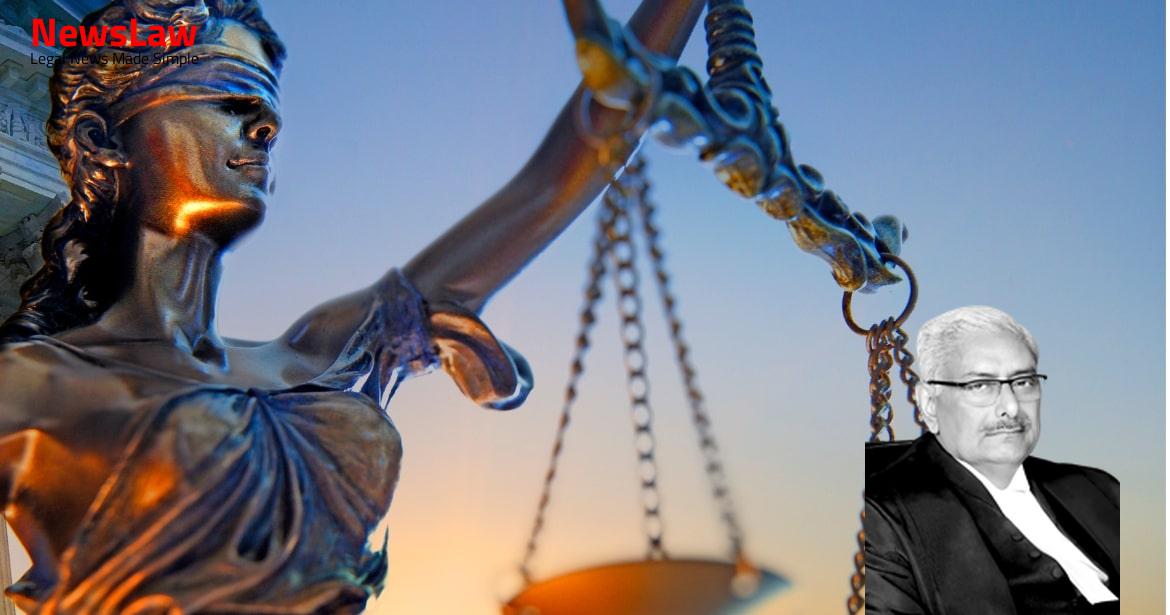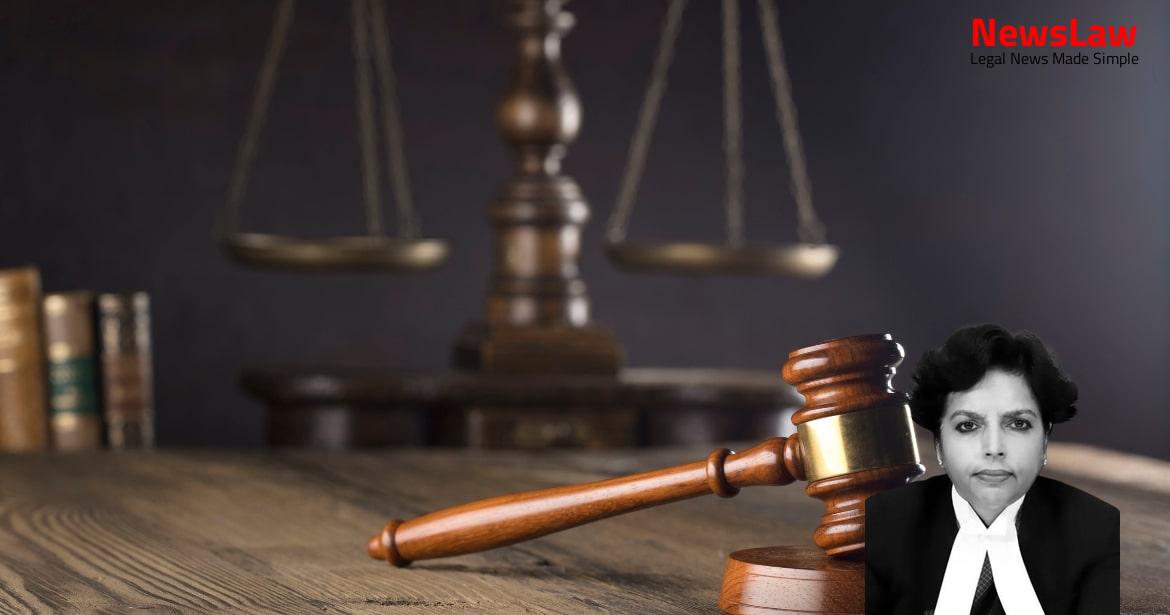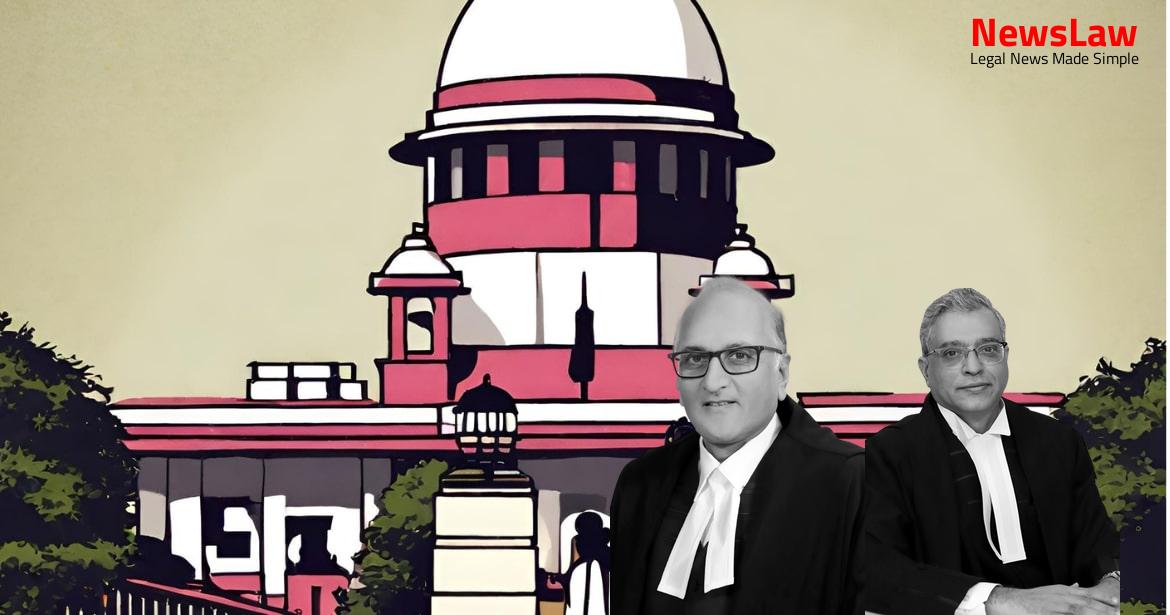Explore the nuanced legal analysis provided by the High Court on the sub-classification of reservation within backward classes. The judgment delves into the constitutionality of internal reservation, the permissibility of sub-classification based on population data, and the State’s authority to provide reservation solely on the basis of caste. This summary sheds light on the legal reasoning and complexities involved in the case.
Facts
- Backward Classes Commission mandated to examine and recommend on internal reservation demand within MBCs
- Bill for special reservation within 20% reserved for MBCs and DNCs presented in Legislative Assembly
- Government decides to maintain 69% reservation as per 1994 Act
- Tamil Nadu Backward Classes Commission directed to decide reservation quantum based on data provided by State Government
- Commission constituted in response to demands of political parties and community organizations
- Chairman of Commission recommends sub-categorization among MBCs and DNCs based on population proportion
- Writ petitions filed in Madras High Court challenging constitutional validity of 2021 Act
- G.O. No 35 prescribes additional terms of reference to Commission to examine internal reservation demand within MBCs and DNCs
- Report submitted by Commission recommending 10.5% internal reservation for Vanniakula Kshatriyas
- Dissent note submitted by six Commission members
- Report submitted to Government justifying continuation of 69% reservation
- Writ petition filed in Supreme Court challenging validity of 1994 Act, pending consideration
- The High Court concluded that sub-classification for reservation is permissible only if a class is far backward than the advanced sections of that class.
- The Janarthanam Commission recommended 10.5% internal reservation for Vanniakula Kshatriyas after assessing the feasibility of other castes for internal reservation.
- The High Court held that the State Legislature lacks the competence to enact the 2021 Act.
- Internal reservation based solely on caste was deemed unconstitutional by the High Court.
- The High Court found a lack of quantifiable data on population, socio-economic status, and representation of backward classes in services.
- The High Court’s judgment was criticized for not considering the reports and extensive findings based on collected data.
Also Read: Reversal of High Court’s Decision on Auction Sale Confirmation
Issue
- The High Court framed points for consideration regarding the State Government’s power to make decisions on Backward Classes in the context of Constitutional provisions.
- The High Court questioned whether sub-classification of MBC can be based solely on population data without objective criteria.
- The High Court raised concerns about the State’s authority to provide reservation based on caste.
Also Read: Interest Compensation Dispute in Property Demolition Case
Arguments
- The Appellants argued that the High Court erred in holding that the State lacked legislative competence to enact the 2021 Act in relation to Section 31-B of the Constitution.
- They emphasized the need to interpret the words ‘repeal or amend’ in Article 31-B within the context of these appeals to reach a conclusive finding.
- The presumption of constitutionality was invoked by the Appellants, placing the burden on the challengers of the legislation to prove a clear violation of constitutional principles.
- They referenced precedents to support the contention that deference should be shown to legislative judgment in making special provisions for specific classes based on relevant facts and circumstances.
- It was highlighted that the differentiation and allocation of percentages under the 2021 Act, specifically for the Vanniakula Kshatriyas, lacked rationale and was considered arbitrary, thereby contravening Article 14 of the Constitution.
- Justice Thanikachalam followed Justice Janarthanam’s recommendation without addressing the lack of updated data as a reason for not providing a comment on the grant of internal reservation
- Justice Thanikachalam stated that his view is unassailable
Also Read: Legal Interpretation of Extension of Judicial Member’s Term
Analysis
- The High Court’s decision to strike down the internal reservation of 10.5% for the Vanniakula Kshatriyas was based on their contention that it was solely caste-based and discriminatory to other communities.
- The condition of the Vanniakula Kshatriyas was assessed in terms of their presence, numbers, occupations, social, and educational status by the Ambasankar Commission.
- Data from the Ambasankar Report indicated that the Vanniakula Kshatriyas had higher representation in public employment and educational institutions compared to other communities in the same class of MBCs and DNCs.
- The sub-classification of MBCs and DNCs for reservation purposes was deemed impermissible based on the law laid down by the Supreme Court.
- The 2021 Act recommending 10.5% reservation for the Vanniakula Kshatriyas was based on detailed assessments and recommendations by the Tamil Nadu Backward Classes Commission.
- Article 31B provides protection to Acts, Regulations, and provisions specified in the Ninth Schedule from being struck down on the grounds of Fundamental Rights infringement.
- The impugned 2021 Act was passed on 26.02.2021 and pertains to socially and educationally backward classes.
- The President can specify socially and educationally backward classes in the Central List through public notification.
- Parliament can include or exclude socially and educationally backward classes from the Central List through law enactment, except for certain situations.
- Provisions that infringe on Fundamental Rights should be strictly construed, and the protected zone should not be expanded beyond the language of the provision.
- The Constitution (One Hundred and Second Amendment) Act, 2018, and the Constitution (One Hundred and Fifth Amendment) Act, 2021, have introduced provisions related to socially and educationally backward classes.
- The National Commission for Backward Classes is established under Article 338-B.
- Acts or regulations specified in the Ninth Schedule are immune from being struck down on the basis of Fundamental Rights violation.
- The Union and State Governments must consult the Commission on major policy matters affecting socially and educationally backward classes.
- State has the power to amend or repeal a statute under the Ninth Schedule
- 105 Amendment Act was prospective, requiring consultation prior to enactment
- Equal treatment for all those similarly circumstanced
- State Legislature had competence to determine reservation among MBCs and DNCs
- 2021 Act sub-classification is permissible but must be reasonable
- 2021 Act based on antiquated data and lacks proper assessment
- Internal reservation recommendations not adequately supported by data
- 2021 Act violates Articles 14, 15, and 16 of the Constitution
- Approval of 2021 Act by Governor not barred by Article 31-C
- Presidential list under Article 342-A not yet published, allowing state legislation
- Judicial oversight on accuracy of Commission data and recommendations
- The defect identified in the Patel Gordhandas Hargovindas case regarding the authorization of tax vs. rate
- Section 73 had authorized the levy of a ‘rate’ which had a specific legislative meaning
- The validating legislation was considered to have cured this defect
Case Title: PATTALI MAKKAL KATCHI Vs. A. MAYILERUMPERUMAL (2022 INSC 378)
Case Number: C.A. No.-002600-002600 / 2022



